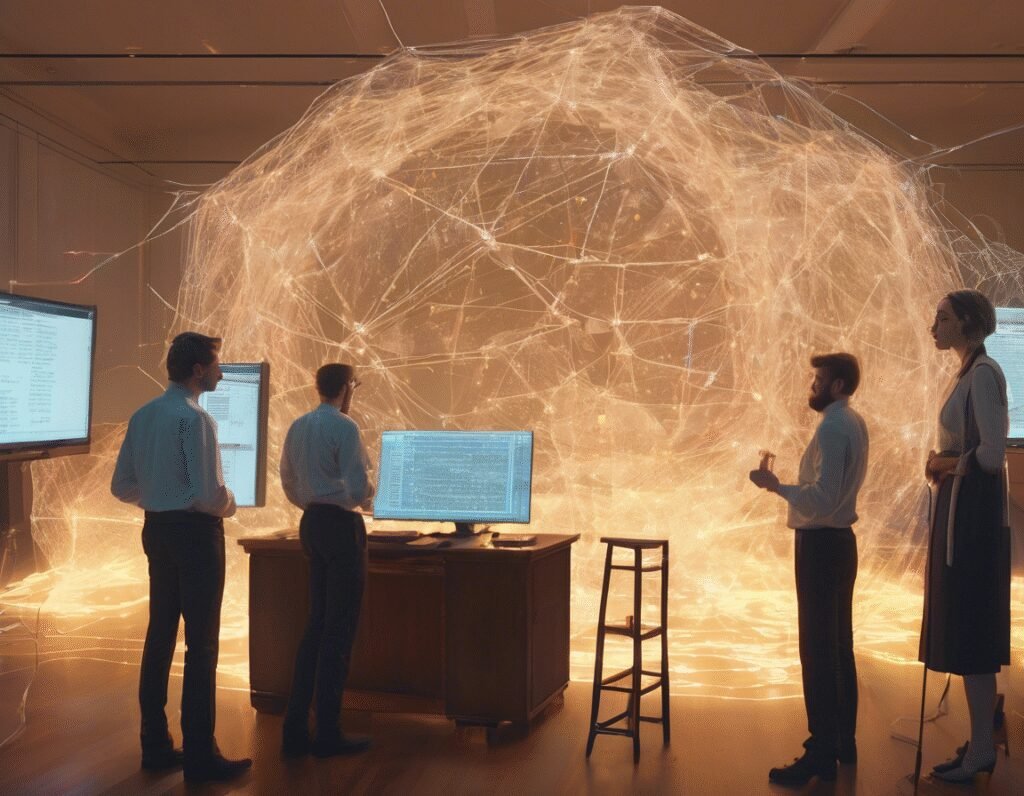The legal battle over artificial intelligence has reached a fever pitch, with copyright lawsuits piling up against the companies behind the most popular AI tools. The core of the dispute centers on a fundamental question for the digital age: do AI developers have the right to use publicly available data to train their models, or does this constitute massive copyright infringement?
Publishers, media giants, and individual creators are lining up to argue the latter. They claim that AI models like those from OpenAI are essentially high-tech plagiarism machines, built by ingesting vast swathes of copyrighted material—articles, books, and images—without permission or payment. This, they argue, allows these AIs to generate content that directly competes with and devalues the original human-created works they were trained on.
The implications of these cases are colossal, stretching far beyond the media industry and into the very heart of the crypto and Web3 ethos. For a space built on principles of decentralization, ownership, and fair value distribution, the outcome of this legal fight is critically important.
The current centralized model of AI training raises significant concerns. A small group of powerful corporations are effectively building multi-billion dollar products on the back of data scraped from the entire internet, often without transparent attribution or compensation for the original creators. This stands in direct opposition to the Web3 vision of a user-owned internet, where individuals maintain control and can monetize their own data and intellectual property.
This is where blockchain technology and crypto-native solutions present a compelling alternative. Imagine a future where AI training is not a one-sided scrape of data but a transparent marketplace. Blockchain could enable a system where creators and data owners can license their work for AI training in a verifiable, traceable way. Smart contracts could automatically facilitate micropayments to rights holders every time their data is used to train a model or generate a new output.
Such a system would align incentives for everyone. AI companies would gain a clear, legal pathway to the high-quality data they desperately need. Creators, from individual artists to large publishers, would finally be compensated for the essential role their work plays in building intelligent systems. This model transforms data from a free resource to be exploited into a valuable asset that creators can choose to monetize.
Tokenization could further revolutionize this space. Creators could tokenize their content, and AI developers could acquire tokens representing usage rights. These tokens could also grant governance power within AI projects, allowing data contributors to have a say in how the models are developed and used.
The courtroom battles happening today are setting the precedent for how AI will be built tomorrow. A ruling that mandates licensing and fair compensation could forcefully accelerate the adoption of crypto-based solutions for data provenance and royalty distribution. It would force AI developers to seek out ethical, transparent, and decentralized methods for sourcing training data.
The fight over AI training data is more than a legal dispute; it is a foundational moment for the next era of the internet. The outcome will determine whether the future of AI is centralized and extractive or decentralized and equitable, built on the core Web3 principles of ownership and fair value exchange.

